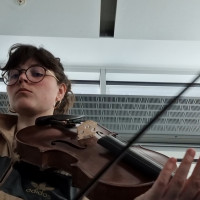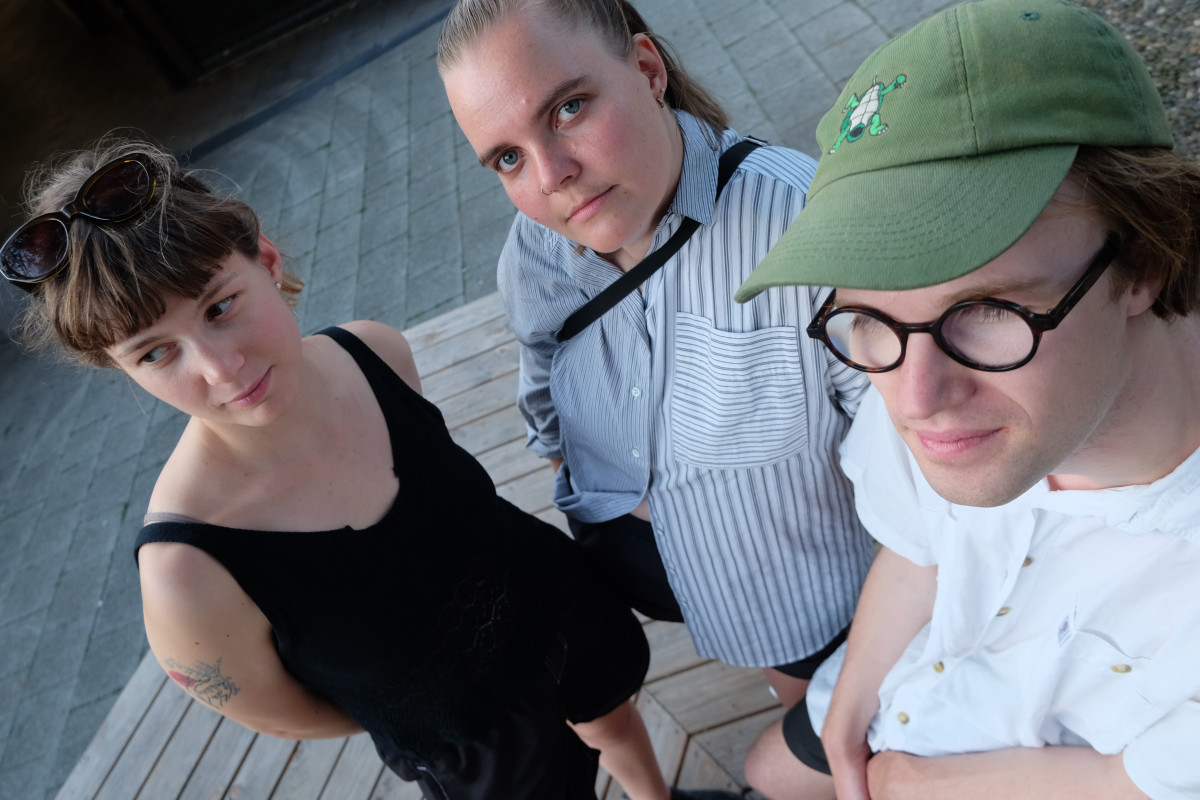En kvæstet svane ligger begravet i tang i et hjørne af salen, mens fire livløse kroppe er spredt ud på gulvet. Fra loftet hænger mere tang, og lugten rammer os allerede, da vi træder ind gennem et blåligt latexlignende forhæng. Foyeren var fyldt med bunker af tang og restplast, og nu er vi inde i et ukendt undervandslandskab. Det blålige lys flimrer på væggen, lydsiden bruser svagt som en fjern strøm af støj. Vi er under vand.
Langsomt kommer kroppe til live igen. De strækker sig i lidende bevægelser, vakler, kæmper – men de rejser sig. Subtile beats og Mads Emil Nielsens urolige droner skubber sceneriet frem. Spørgsmålet om, hvad der er sket, er retorisk: alt peger på klimakatastrofen. Roskilde Fjord er gået over sine bredder. Menneskene fortsætter – trods undtagelsestilstand, trods oversvømmelse – mens svanen er bukket under.
Dystopien bliver levende, når danserne med imponerende undersøgende bevægelser afsøger måder at tilpasse sig en ny verden på. Her spiller scenografi, lys og dans kraftfuldt sammen, og man mærker, hvordan sanserne overvældes. Netop derfor er det en skam, at lydkvaliteten er mat, når det soniske spiller en rolle i historiefortællingen.
Alligevel lykkes Vi fortsætter… med at skabe et univers, der på én gang er absurd og alt for genkendeligt. Det minder om en mild version af Ruben Östlunds katastrofepos Force Majeure: menneskets komiske og tragiske personlighedstræk sat over for naturens uafvendelige kræfter. Til sidst forlader danserne scenen og lader os tilbage i stilhed – med eftertanken om, hvorfor vi fortsætter sådan, og følelsen af selv at stå og træde vande længe efter, vi har forladt fjordens oversvømmede univers.








